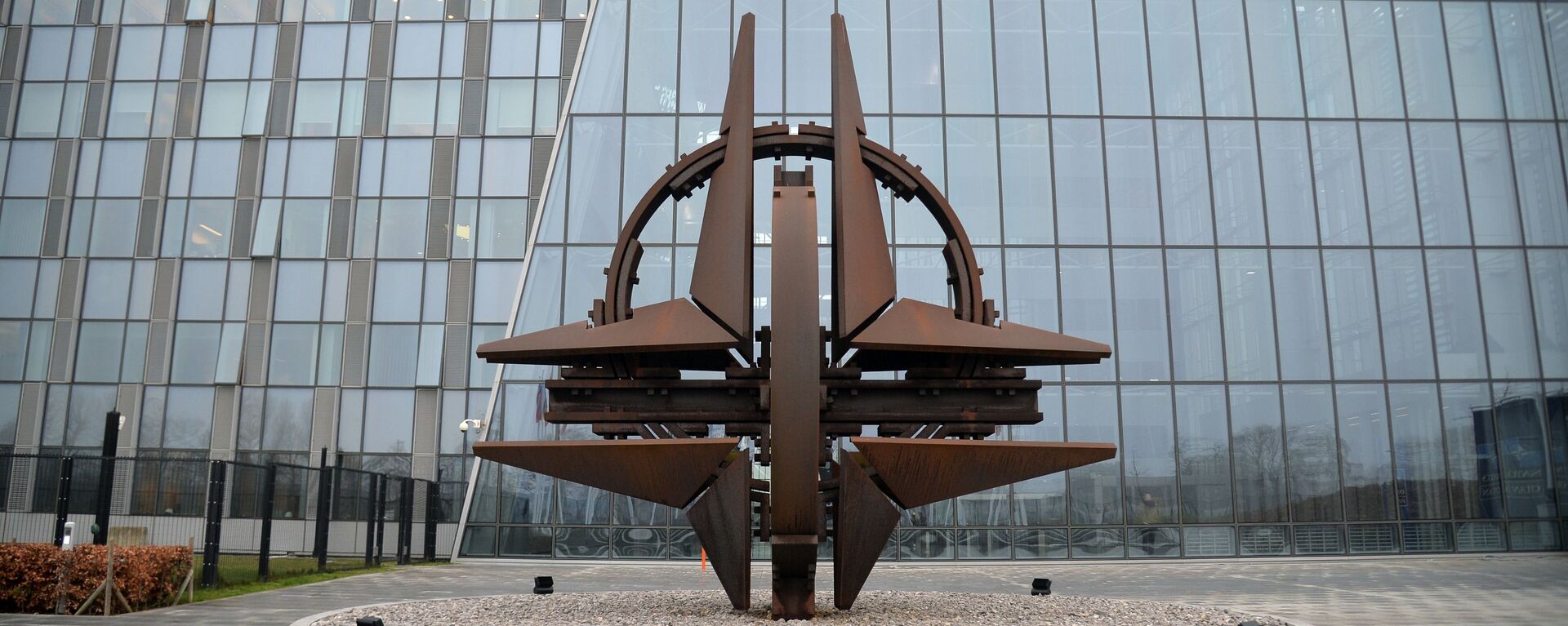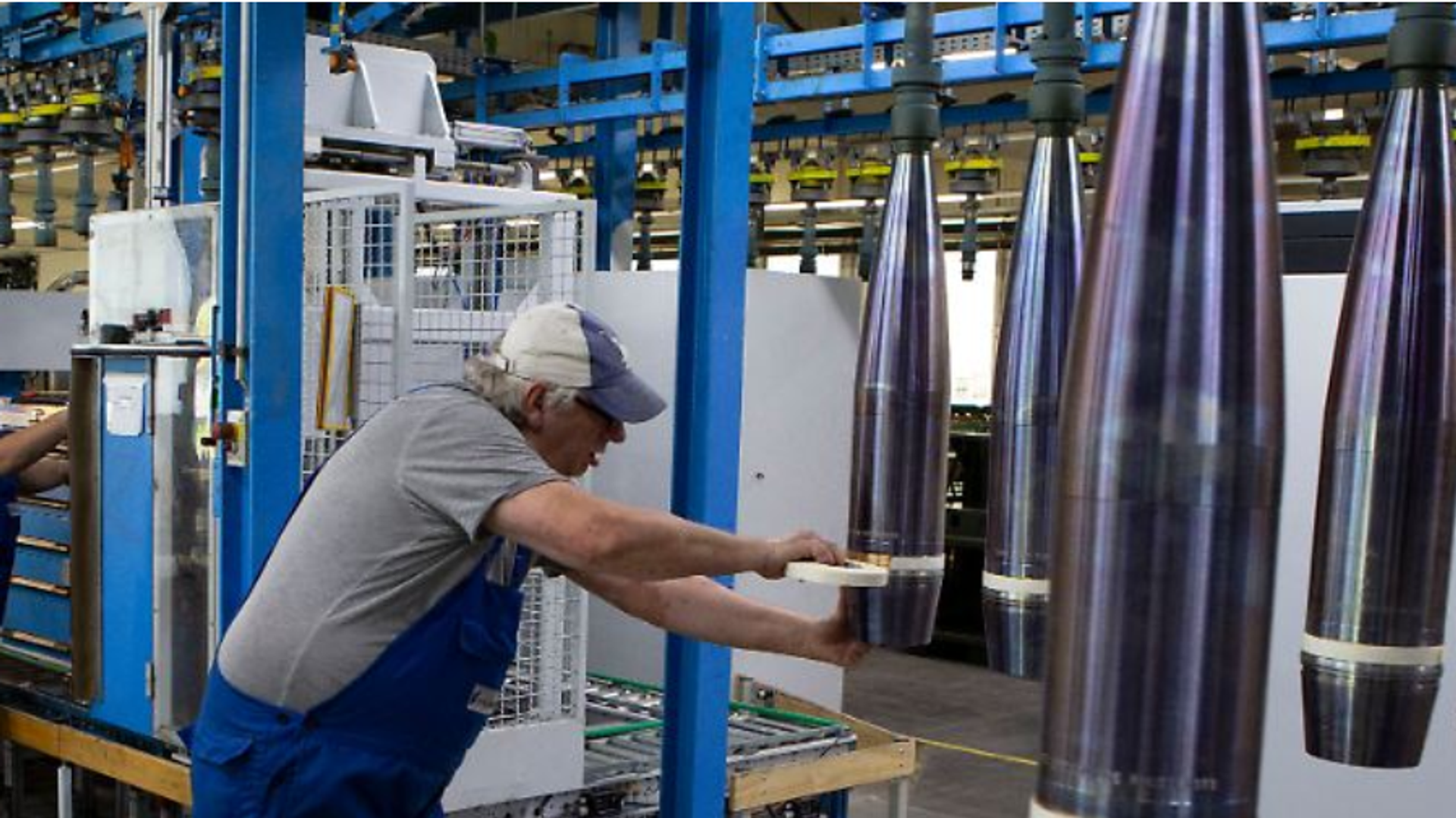https://sputnikglobe.com/20241227/europe-not-keeping-up-with-tech-progress-creating-new-weapons-already-outdated---nato-1121279512.html
Europe Not Keeping Up With Tech Progress, Creating New Weapons Already Outdated - NATO
Europe Not Keeping Up With Tech Progress, Creating New Weapons Already Outdated - NATO
Sputnik International
Adm. Pierre Vandier, NATO's Supreme Allied Commander Transformation, says Europe lags in military tech development and weapon systems take too long to field, making them outdated by the time they're used.
2024-12-27T01:21+0000
2024-12-27T01:21+0000
2024-12-27T03:44+0000
military
military & intelligence
nato
europe
military production
military industry
military technology
https://cdn1.img.sputnikglobe.com/img/07e8/09/1d/1120342774_67:0:965:505_1920x0_80_0_0_2087a7d50aa64fdf9c5609c1af774744.png
MOSCOW, December 27 (Sputnik) - Europe is not keeping up with the development of military technologies and is spending too many years creating weapons systems, which is why they become outdated when they are finally adopted, NATO Supreme Allied Commander Transformation Adm. Pierre Vandier said. He added that the tech development period is about two to three years, which is ten times faster than "the huge, controlled procurement system in Europe." At the same time, he noted that it is not possible to speed up the development of large equipment - aircraft, tanks or ships - because their creation always takes decades. However, the speed of development of new technologies in the fields of optoelectronics, artificial intelligence (AI), communications and software should be increased, Vandier added.
https://sputnikglobe.com/20241225/money-for-nothing-but-guns-not-free-nato-military-spending-soars-in-2024-1121268705.html
Sputnik International
feedback@sputniknews.com
+74956456601
MIA „Rossiya Segodnya“
2024
Sputnik International
feedback@sputniknews.com
+74956456601
MIA „Rossiya Segodnya“
News
en_EN
Sputnik International
feedback@sputniknews.com
+74956456601
MIA „Rossiya Segodnya“
Sputnik International
feedback@sputniknews.com
+74956456601
MIA „Rossiya Segodnya“
new european weapons, weapon production in europe, military innovations in europe, nato in europe, why european weapons are worse than russia,
new european weapons, weapon production in europe, military innovations in europe, nato in europe, why european weapons are worse than russia,
Europe Not Keeping Up With Tech Progress, Creating New Weapons Already Outdated - NATO
01:21 GMT 27.12.2024 (Updated: 03:44 GMT 27.12.2024) Adm. Pierre Vandier, NATO's Supreme Allied Commander Transformation, says Europe lags in military tech development and weapon systems take too long to field, making them outdated by the time they're used.
MOSCOW, December 27 (Sputnik) - Europe is not keeping up with the development of military technologies and is spending
too many years creating weapons systems, which is why they become outdated when they are finally adopted, NATO Supreme Allied Commander Transformation Adm. Pierre Vandier said.
"For example, you say ‘I am building the next generation of tanks’ … They work for years on this … announce a contract, industry runs this for another decade, and ultimately you have a tank that you are not certain fulfills your goals as things have changed. New technology had time to arrive – you’ve spent a lot of money, just to have a platform that is obsolete by design, and all because the time spent building it was too long," Vandier told the Defense News portal on Thursday.
Adm. Pierre Vandier
NATO Supreme Allied Commander Transformation
He added that the tech development period is about two to three years, which is ten times faster than "the huge, controlled procurement system in Europe."

25 December 2024, 13:21 GMT
At the same time, he noted that it is not possible to speed up the development of large equipment - aircraft, tanks or ships - because
their creation always takes decades. However, the speed of development of new technologies in the fields of optoelectronics, artificial intelligence (AI), communications and software should be increased, Vandier added.



